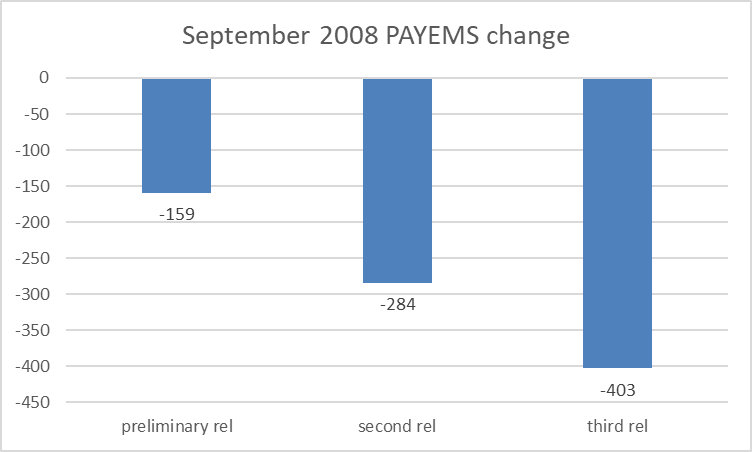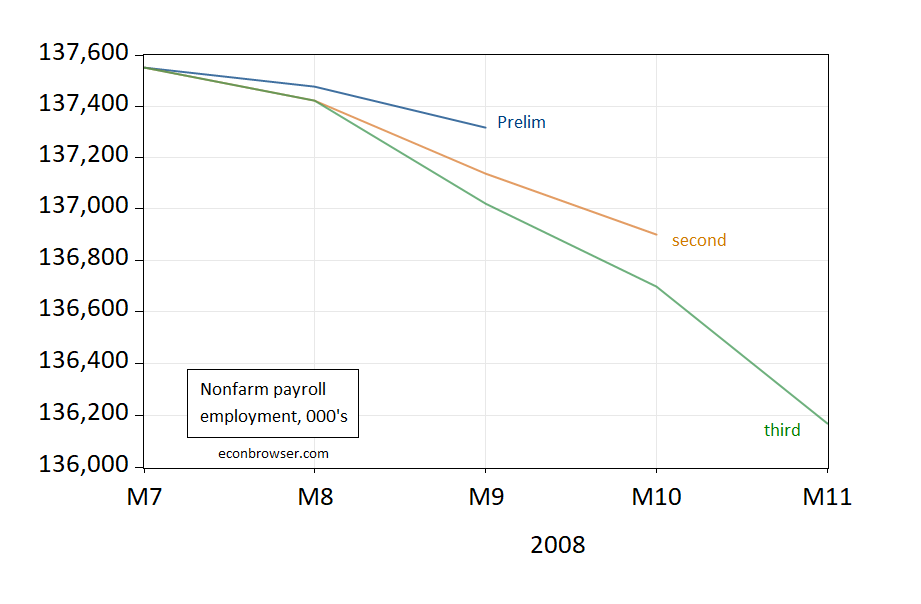When the economy is growing in a steady manner, a missed release is not a problem. But when the economy is on a potential tipping point, the preliminary release and revisions take on a heighted importance. Example: September 2008 net job gains:
Or visualized differently:
In other words, around turning points, revisions can be of substantial interest.


Speaking of turning points, Krugman has just compared the Britain’s Railway Mania of the 1840s to today’s AI boom:
https://paulkrugman.substack.com/p/technology-bubbles-causes-and-consequences
Menzie has aldo pointed out the risks inherent in our latest technology boom:
https://econbrowser.com/archives/2025/10/scary-picture-2
https://econbrowser.com/archives/2025/09/growth-reliance-on-the-tech-spending-boom
Why stop with the UK in 1840?
The Great Depression of the 1930s involved, among other things, the end of a boom in investment in automobile production:
https://www.ebsco.com/research-starters/history/american-automobile-industry-1920s
And electification:
https://www.lifetechnology.com/blogs/life-technology-technology-news/electrification-boom-in-1920s-us-industrial-dominance
The first Great Depression, starting in 1873, was preceded by a boom in railroad construction. Jay Cooke and Company collapsed when it couldn’t arrange the sale of railroad bonds – the boom was over. Railroad construction had been the largest U.S. employer other than farming, and tens of thousands of men were suddenly without work. Iron and steel production plunged.
The recession of the early 2000s followed in the tech/Nasdaq of the 1990s. Lots of histories of that recession focus on the 9/11 attacks, but have a look at share of technology spending into Y2K and during the recession.
The Covid recession seems to have ended a smartphone investment boom, so we can’t know whether that tech boom would have ended in recession.
Not all technology boom-and-bust cycles lead to recessions. The rapid adoption of personal computers in the 1980 may have contributed to the Black Monday crash in 1987 – the drop in PC makers shares was more persistent than for the overall market – but no recession resulted.
Financial excess is a far more frequent cause of recession than the end of a technology boom, but technology booms pretty much always lead to financial excess. Krugman’s essay is behind a paywall, so I don’t know what he has to say about this connection, but the connection is clear.